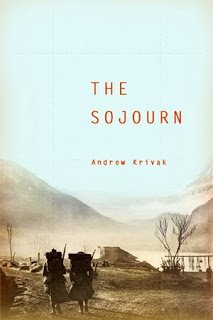The Sojourn
I just finishedreading The Sojourn, by Andrew Krivak. The book was a finalistfor the 2011 National Book Award and winner of both the Dayton Literary Peace Prizeand inaugural Chautauqua Prize. The debut novel by this author, The Sojourn reminded me in places ofCather’s My Antonía.
The coming-of-age story follows Jozef Vinich, a boy uprootedin his infancy from a Colorado mining town upon the death of his mother. Jozefand his father return to live as poor shepherds in rural Austria-Hungary. Thework is set in an era when Slovaks, Austrians, Germans, and Czechs fought onthe same side.
At the beginning of WWI, Jozef joins his adopted brother asa sharpshooter in the German army and survives a trek across the Alps in Italyonly to be captured by an enemy that wins. The author’s own family history (heis the grandson of Slovak immigrants) serves as inspiration for this tale ofbrotherhood and survival.
I love how Krivak shows the passage of time in places usingelements from the church calendar. For example, the soldiers—who have beentraversing the Alps since October—enter a chapel and see an advent wreath. Atthis point, the reader deduces that it’s December and knows two months havepassed. I also enjoyed reading of LakeGarda and Padua, the latter of which I plan to visit in mid-December.
The author does love long sentences. In several places asingle one would fill an entire multi-line paragraph. But mostly the proseflows smoothly and demonstrates Krivak’s mastery of simile. And his wisdom. Heclearly understands the dynamics between fathers and sons and the prejudices immigrantshave faced. And he handles pacing well, as well as having deep insight into thehuman condition.
I heard about thisbook from the folks putting together Calvin College’s biannual Festival ofFaith and Writing. Krivak is on the docket to speak at the April 2014conference, which I plan to attend and highly recommend. Krivak has alsowritten A Long Retreat: In Search of a Religious Life, a memoirabout his eight years in the Jesuit Order. He served as editor for TheLetters of William Carlos Williams to Edgar Irving Williams, 1902–1912,which received the Louis L. Martz Prize.

